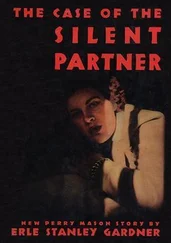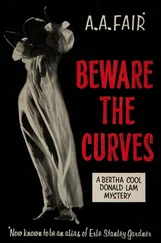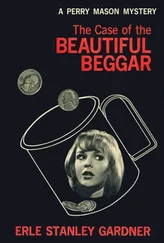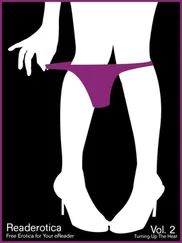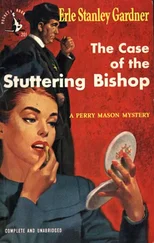I went back to the clerk’s office and told the suspicious-eyed woman that I wanted to see the file in the case of Lintig versus Lintig. It didn’t take ten seconds to dig it up.
I looked through the papers. There was the complaint, the answer, the cross-complaint, a stipulation giving the plaintiff ten days’ additional time within which to answer the cross-complaint, another stipulation giving him twenty days, a third stipulation giving him thirty days, and then a notice of default. Apparently, summons had never been served on Vivian Carter, and for that reason the case had never been brought to trial, nor did it appear that it had ever been formally dismissed.
I walked out feeling the suspicious hostility of her eyes on the back of my neck.
I went back to the hotel, sat in the writing-room and scribbled a note to Bertha Cool on hotel stationery:
B. Check through the passenger lists on ships leaving San Francisco during December 1919 for the East coast via the Canal. Find the one that carried Mrs. Lintig. Check the names of other passengers, and see if you can locate some fellow-traveller. Mrs. Lintig was full of matrimonial troubles, and may have spilled the beans to some fellow-passenger. It’s a long time ago, but the lead may give us pay dirt. The trail looks pretty cold at this end.
I scribbled my initials on the report, put it in a stamped, addressed envelope, and was assured by the clerk it would catch the two-thirty train out.
I tried the Grotto for lunch, and then went back to the Blade office. “I want to run an ad,” I said.
The girl with the thoughtful brown eyes stretched a hand across the counter for the ad.
She read it, re-read it, checked off the words, then vanished into the back room.
After a while a heavy-set man with sagging shoulders, a green eye-shade pulled low on his forehead, and tobacco stain at the corners of his lips, came out and said, “Your name Lam?”
“Yes.”
“You wanted to put that ad in the paper?”
“Uh huh. How much is it?”
He said, “There might be a story in you.”
I said, “There might, and then again there might not.”
“A little publicity might help you get what you want.”
“And again it might not.”
He looked at the ad, and said, “According to this, there’s some money coming to Mrs. Lintig.”
“It doesn’t say so,” I said.
“Well, it might just as well say so. You say that a liberal reward will be paid to anyone who can give you information as to the present whereabouts of Mrs. James C. Lintig, who left Oakview in 1919, or, in the event she is dead, as to the names and residences of her legal heirs. That sounds to me as though you were one of these heir chasers — and that fits in with some of the other things.”
“What other things?” I asked.
He turned, focused his eyes on the cuspidor, streamed yellow liquid explosively. He said, “I asked you first.”
“The initial question,” I said, “of which you seem to have lost sight, was the cost of the ad.”
“Five bucks for three insertions.”
I gave him five dollars of Bertha Cool’s money, and asked for a receipt. He said, “Wait a minute,” and went back behind the partition. A minute later the brown-eyed girl came out, and said, “You wanted a receipt, Mr. Lam?”
“I did, and I do.”
She hesitated over the receipt, holding her pen over the date line, then looked up at me. “How was the Grotto?”
“Rotten,” I said. “Where’s the best place for dinner?”
“The hotel dining-room if you know what to order.”
“How do you know what to order?”
“You have to be a detective,” she said.
I let that pass, and after she saw that it had passed, she said, “You go in for a little deduction, and reason by elimination. In other words, you need a licensed guide.”
“Do you,” I asked, “have a licence?”
She glanced over her shoulder towards the partition. “It isn’t quite as bad as that.”
“Aren’t you a member of the Chamber of Commerce?”
“I’m not. The paper is.”
I said, “I’m a stranger in town. You can’t tell. I might be looking for a good manufacturing site. It would be a shame for me to get a false impression of the city.”
Behind the partition the man coughed.
“What do the local people do for good cooking?”
“That’s easy. They get married.”
“And live happily ever afterward?”
“Yes.”
“Are you,” I asked, “married?”
“No. I eat at the hotel dining-room.”
“And know what to order?”
“Yes.”
“How about eating with a perfect stranger,” I asked, “and showing him the ropes?”
She laughed nervously. “You aren’t exactly a stranger.”
“And I’m not exactly perfect. We could eat and talk.”
“What would we talk about?”
“About how a girl, working in a country newspaper office, might make a little extra money.”
“How much extra?” she asked.
“I don’t know,” I said. “I’d have to find out.”
She said, “So would I.”
“How about the dinner?” I asked.
She glanced swiftly over her shoulder towards the partition, and then said, “It’s a date.”
I waited while her pen fairly flew over the receipt blank. “It’ll start day after tomorrow. We’re a weekly now,” she said.
“I know,” I told her. “Shall I call for you here?”
“No, no. I’ll be in the hotel lobby about six o’clock. Do you know anyone in town?”
“No.”
She seemed rather relieved by that.
“Any other newspaper in town?” I asked.
“No, not now. There was one back in 1918, but it folded in ’23.”
“What about the blazed trail?” I asked.
“You’re on it,” she said, smiling.
Back of the partition, the man coughed again, this time, I thought, warningly.
I said, “I’d like to get the file for ’17, ’18, and ’19.”
She brought them out, and I spent most of the afternoon checking the society columns, getting the names of the persons who had attended social gatherings at which Dr. and Mrs. Lintig had been present. I arranged the names in columns and checked those which were repeated frequently enough to give me an idea of the social circle in which the Lintigs had moved.
The girl back of the counter spent part of the time on the stool, watching me; part of the time behind the partition, clacking away on the typewriter. I didn’t hear the masculine voice again, but I remembered that warning cough and didn’t try to talk with her. The name on the receipt she had given me was Marian Dunton.
Around five o’clock I went back to the hotel and freshened up. Then I went down to the lobby and waited for her. She came in about six.
“How’s the cocktail bar?” I asked.
“Pretty good.”
“Would cocktails make our dinner taste better?”
“I think they would.”
We had a dry Martini apiece, and I suggested another one. “Are you,” she inquired, “trying to get me tight?”
“On two cocktails?” I asked.
“Experience has taught me that two make a swell beginning.”
“Why should I want to get you tight?”
“I wouldn’t know,” she said with a laugh. “How could a girl working in a newspaper office in Oakview make some extra money?”
“I’m not certain yet,” I said. “It depends on the blazed trail.”
“What about it?”
“How far it’s been blazed, and who blazed it.”
“Oh,” she said.
I caught the bartender’s eye and indicated the two empty glasses. While he was fixing the second cocktail, I said, “I’m listening.”
“It’s an excellent habit,” she told me. “I try to cultivate it.”
Читать дальше

